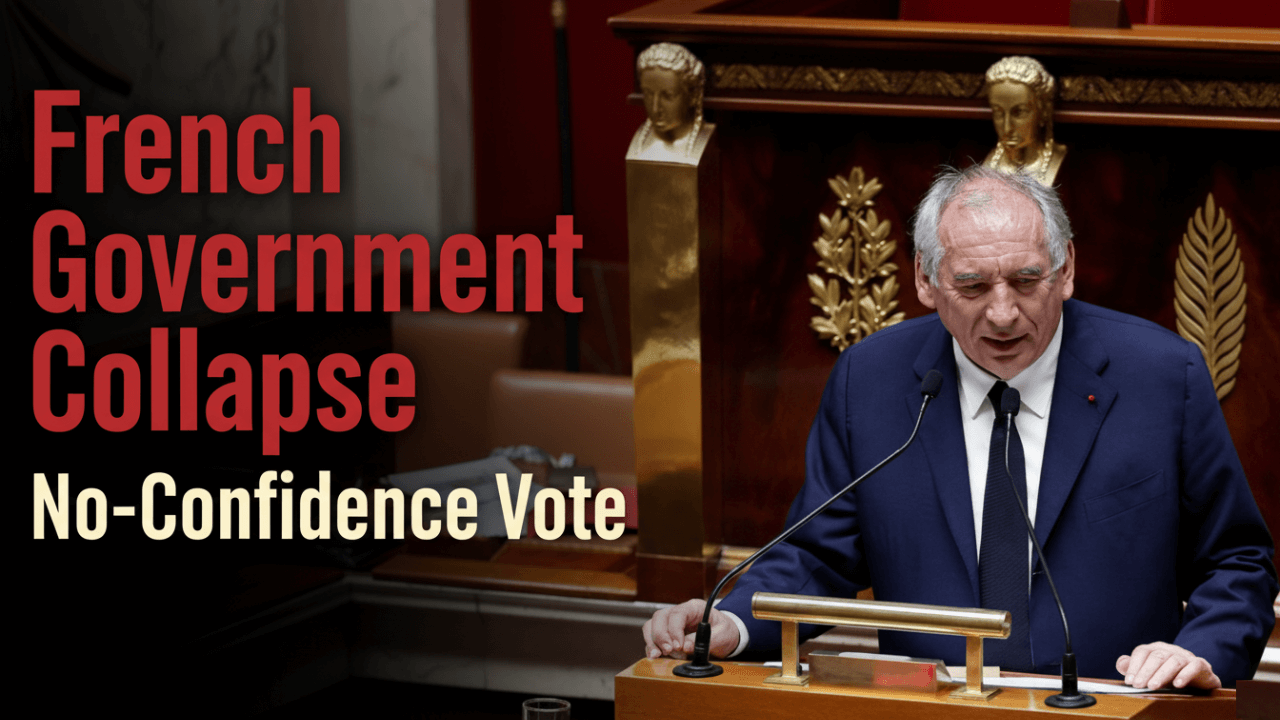Prime Minister François Bayrou falls after pushing austerity measures, leaving a fractured parliament and a struggling economy in his wake.
The French government collapsed on Monday after Prime Minister François Bayrou lost a vote of confidence in the National Assembly, triggering the country’s most severe political crisis in years and casting doubt on its ability to address mounting economic challenges and global instability.
Lawmakers voted 364 to 194 to oust Bayrou, a resounding defeat that far exceeded the 287 votes needed. The vote was a self-inflicted gambit by the Prime Minister, who had staked his government’s survival on passing a contentious €44 billion ($51 billion) austerity package aimed at curbing France’s soaring public debt.
The plan, which included politically toxic measures like scrapping two public holidays and freezing government spending, proved too much for the fractured parliament to swallow. Bayrou’s resignation after just nine months in office marks the third time a centrist prime minister has been toppled since President Emmanuel Macron’s party lost its majority in a snap election last year.
An “Unrelenting Reality” and a Broken Contract
In a defiant speech ahead of the vote, Bayrou warned lawmakers of the consequences of their actions. “You have the power to bring down the government, but you do not have the power to erase reality,” he stated. “Reality will remain relentless: expenses will continue to rise, and the burden of debt, already unbearable, will grow heavier and more costly.”
In a poignant admission, he conceded that the state had “broken the social contract” with younger generations, a remark that underscores the deep social tensions underlying the budgetary battle.
Economic Jitters and Political Poison
The immediate fallout has spooked financial markets. The interest rates, or yields, on French government bonds have now risen above those of Spain, Portugal, and even Greece—nations once at the epicenter of the eurozone debt crisis. All eyes are now on a Friday review by credit rating agencies, with a potential downgrade of France’s sovereign debt looming as another blow to its economic prestige.
President Macron, according to the Élysée Palace, will name a new prime minister in the coming days. Potential frontrunners include current Armed Forces Minister Sébastien Lecornu and Justice Minister Gérald Darmanin. However, the role is widely seen as a “poisoned chalice.”
The core of Macron’s problem is a parliament deadlocked by ideological warfare. After three failed centrist premiers, the opposition—from the far-right National Rally (RN) to the left-wing coalition—has signaled it will immediately file a new no-confidence motion against any similarly aligned successor. The prospect of appointing a prime minister from the right or left is equally fraught, as either would be instantly blocked by the other side.
What Comes Next? A Nation on Edge
The crisis is a direct legacy of Macron’s decision to call a snap election in 2024 after a bruising defeat by the far-right in European polls. The move backfired spectacularly, shattering his centrist bloc and producing a hung parliament where compromise is a rarity.
With the budget impasse unresolved, France’s fiscal woes are now expected to worsen. The political instability also arrives at a perilous geopolitical moment, providing ammunition for critics like Russian President Vladimir Putin and former U.S. President Donald Trump, who “share a common delight in mocking Europe’s weaknesses,” as noted in the briefing.
Meanwhile, public anger is boiling over. The far left has called for nationwide protests under the banner “Bloquons tout” (“Let’s block everything”) this Wednesday, with trade unions planning further mobilizations later this month.
As the dust settles, the question is no longer if the far-right National Rally will gain power, but when. A recent Elabe poll suggests the RN would win a new election, placing Macron’s bloc a distant third. Whether that shift happens now or in the 2027 presidential election, France is navigating uncharted and turbulent political waters, with no captain at the helm.


